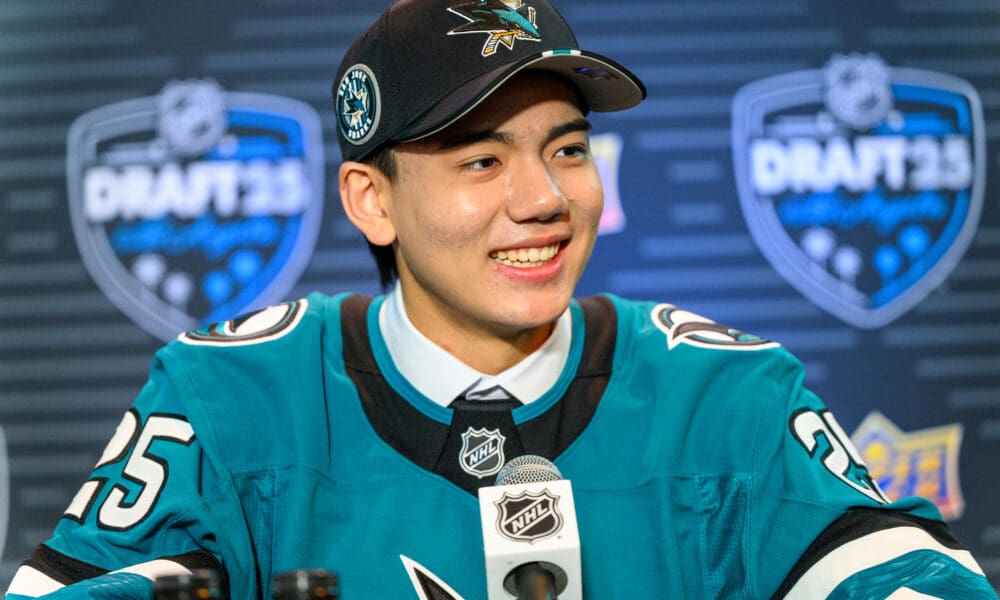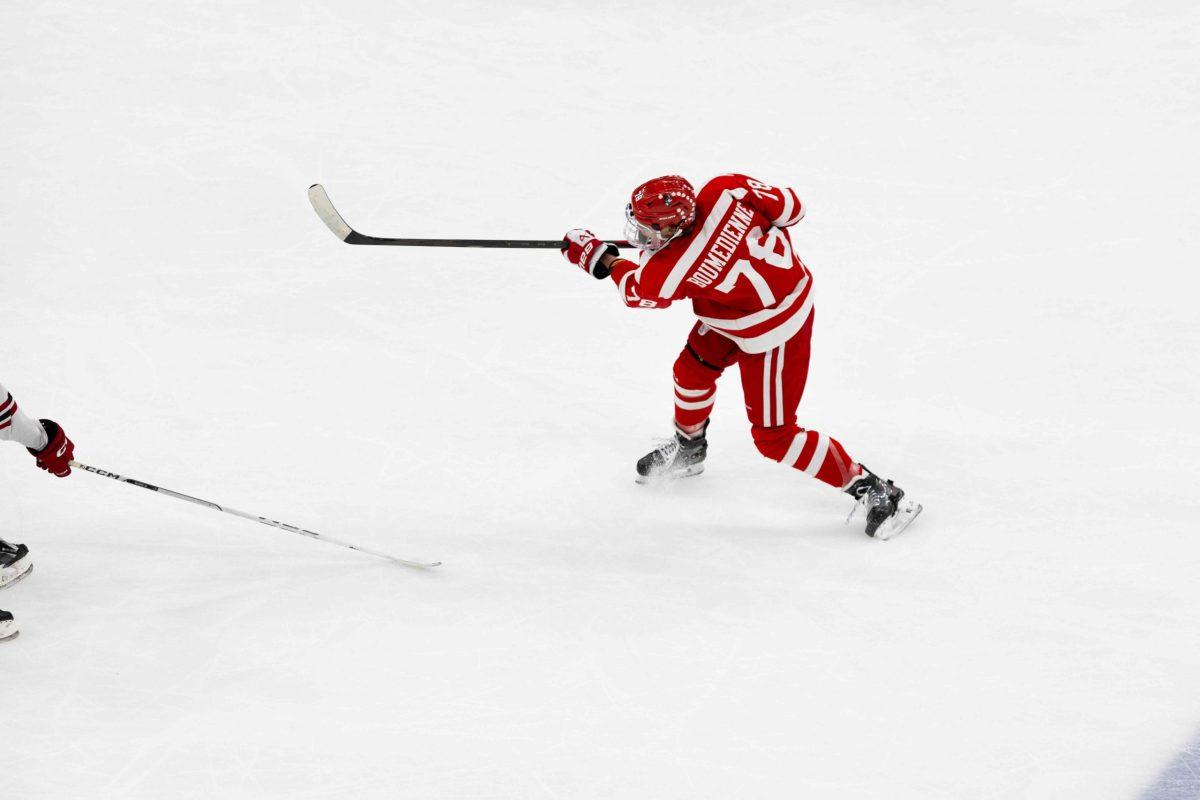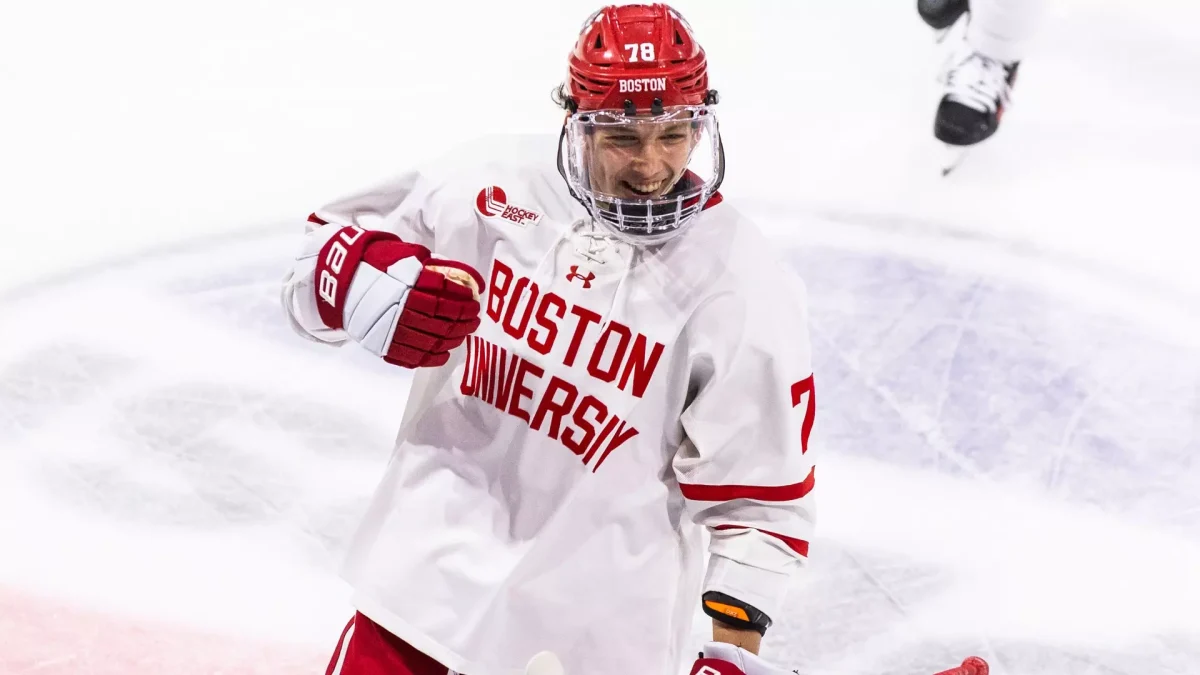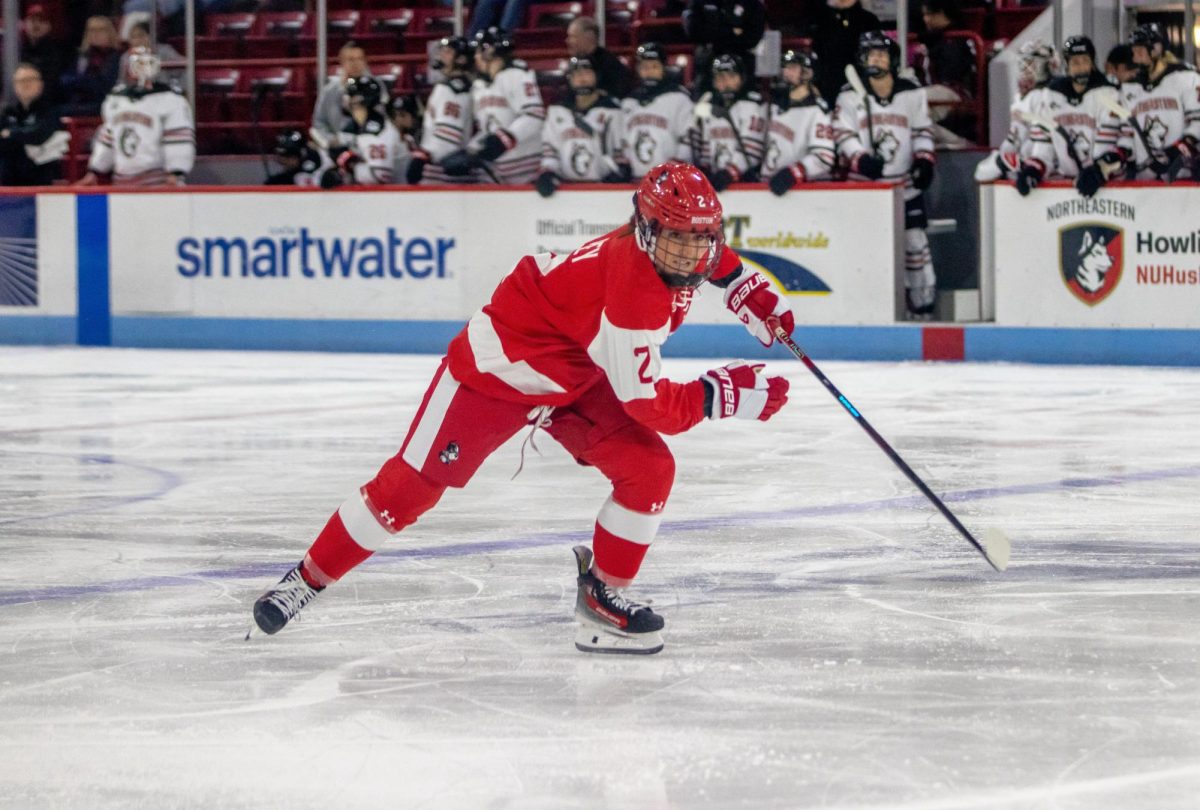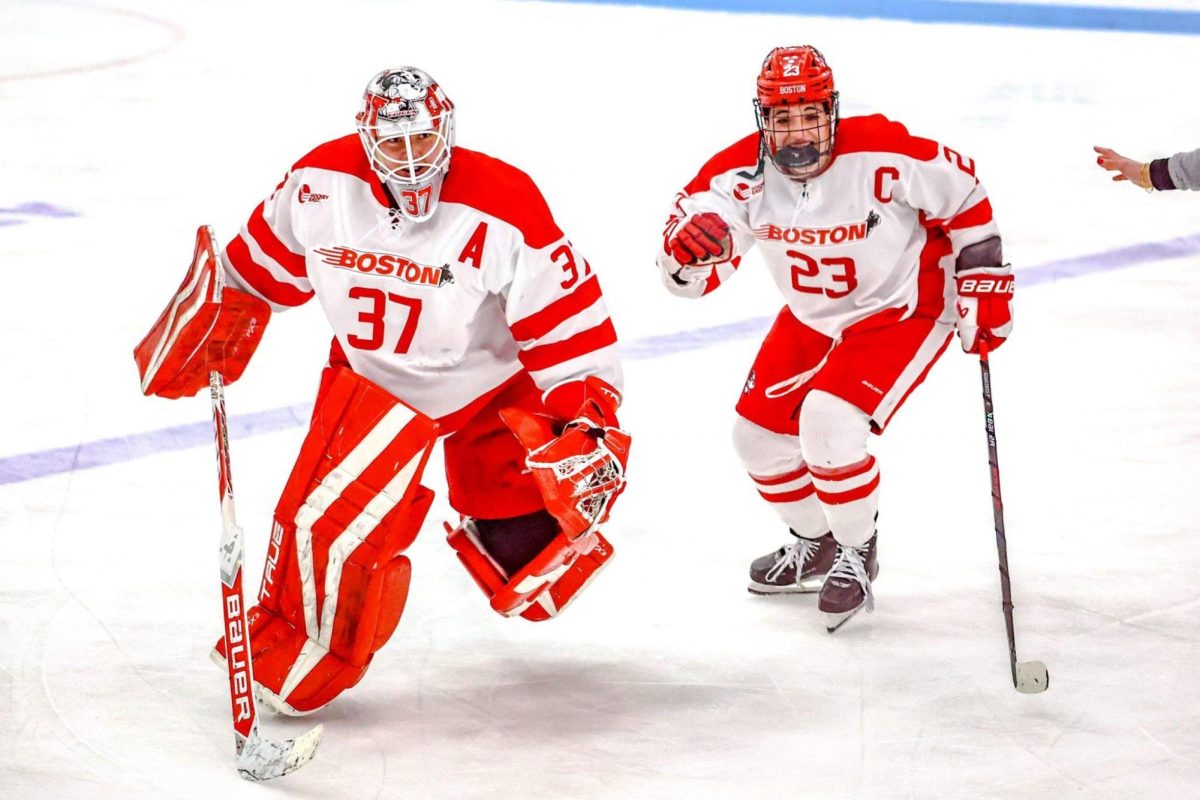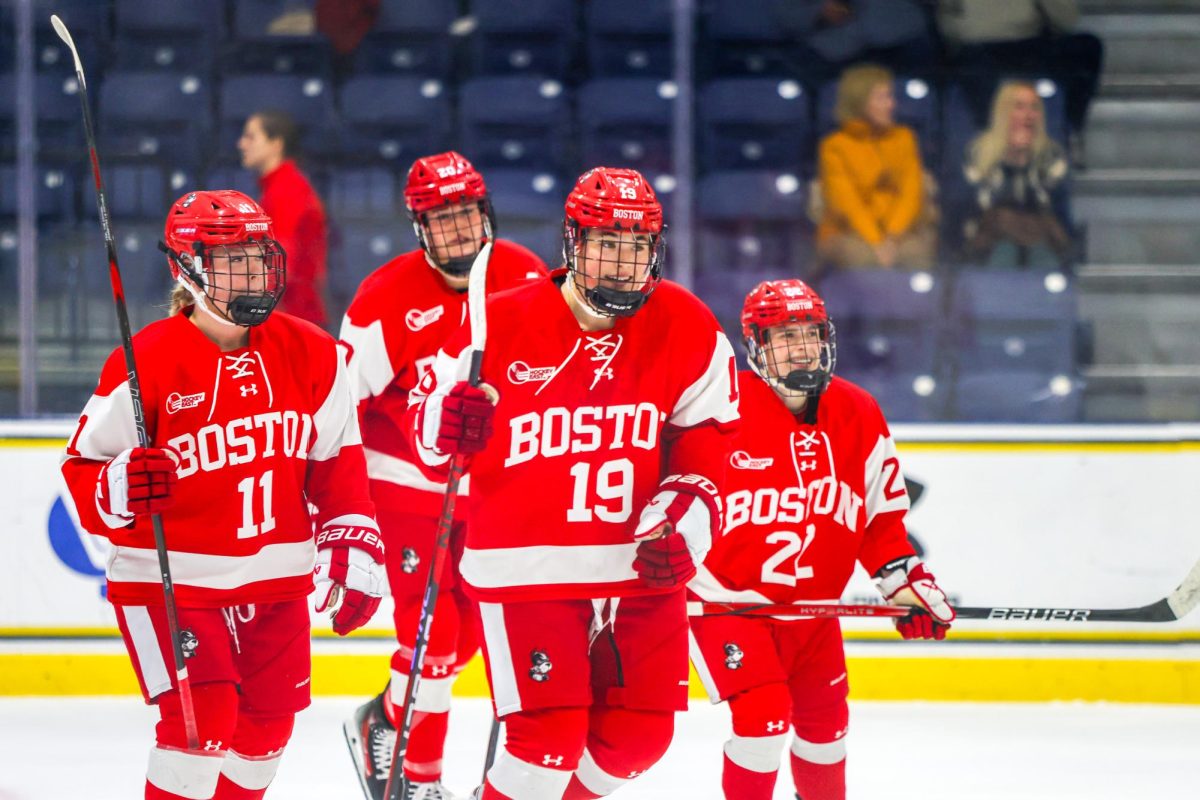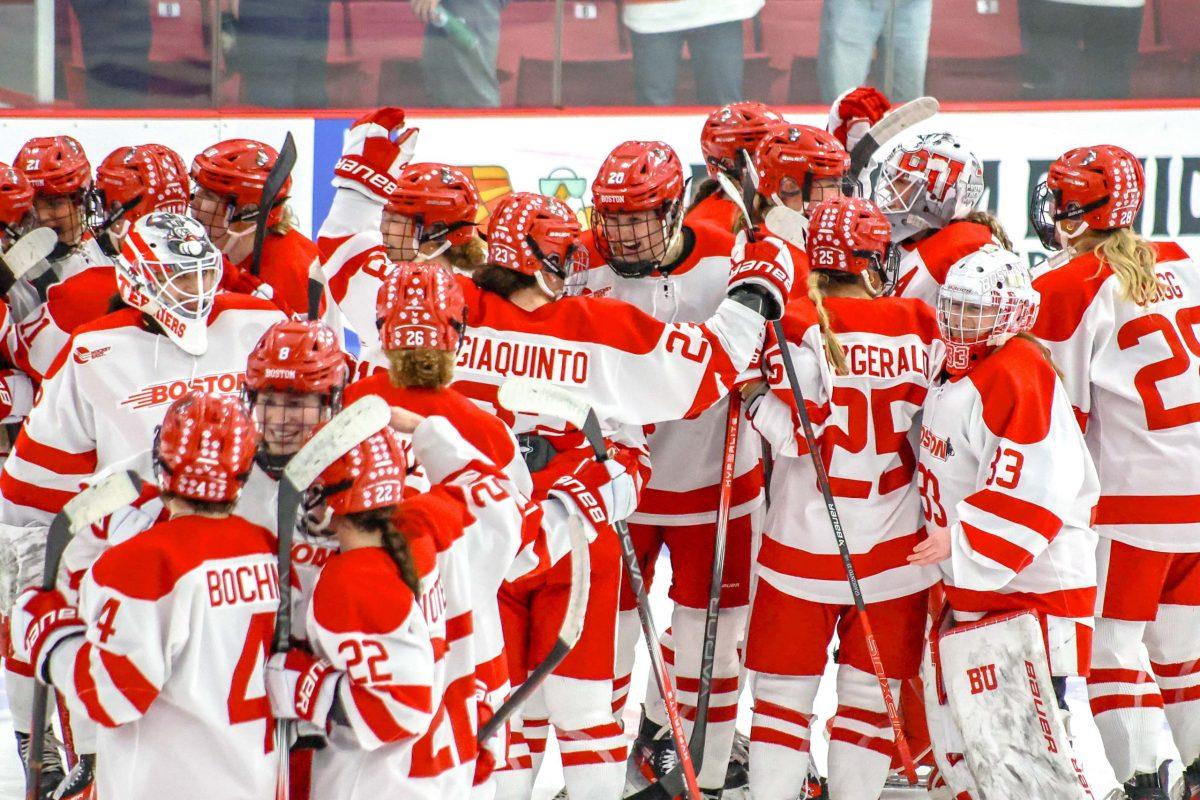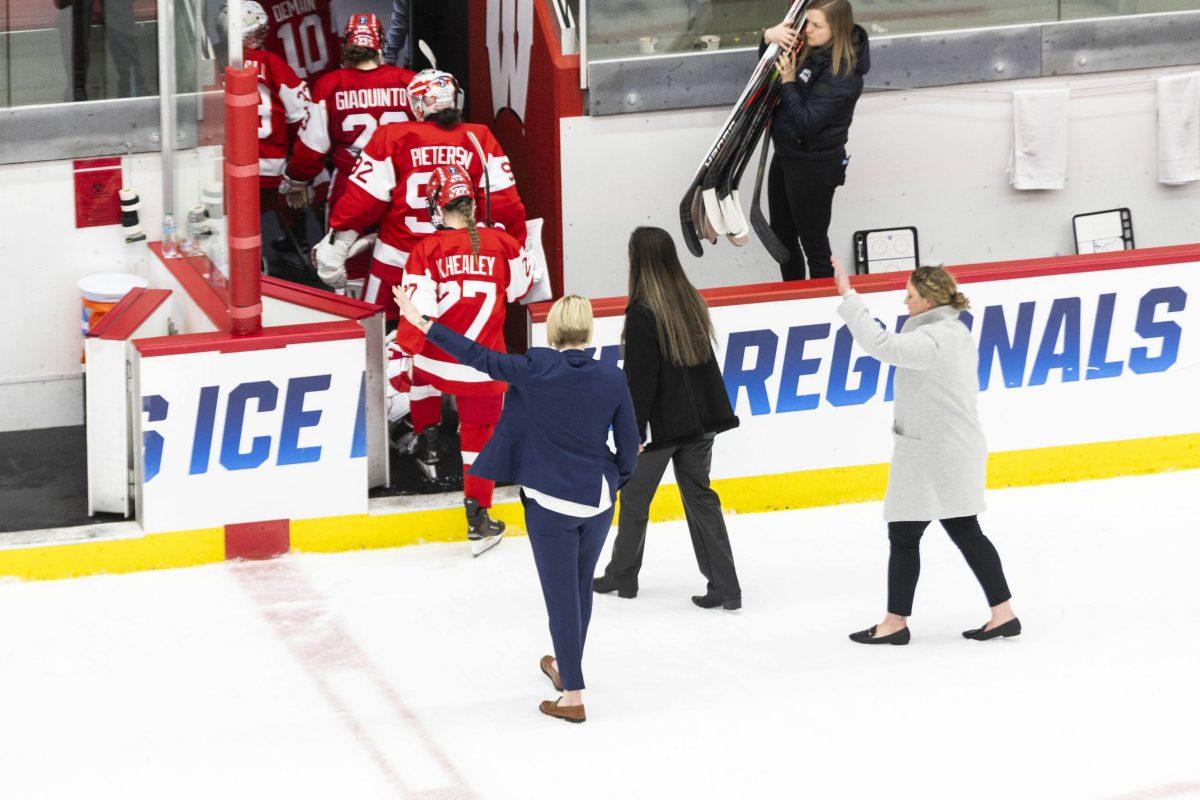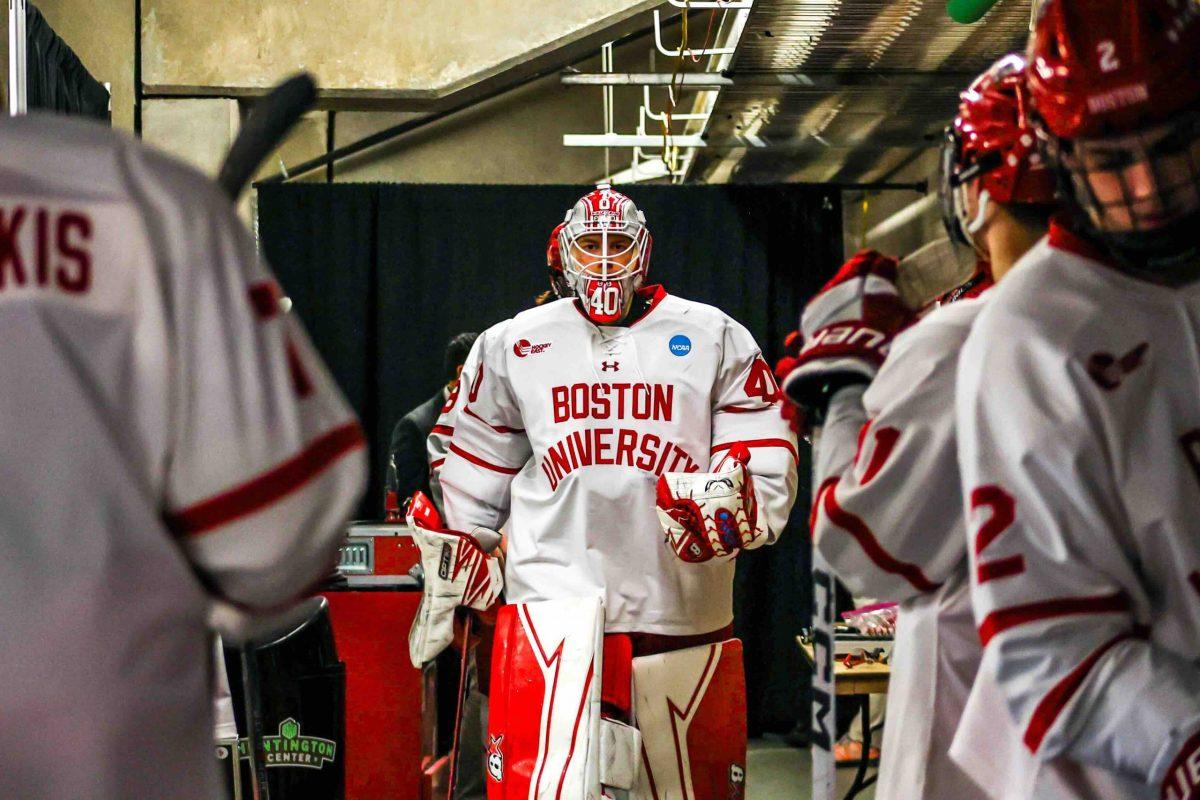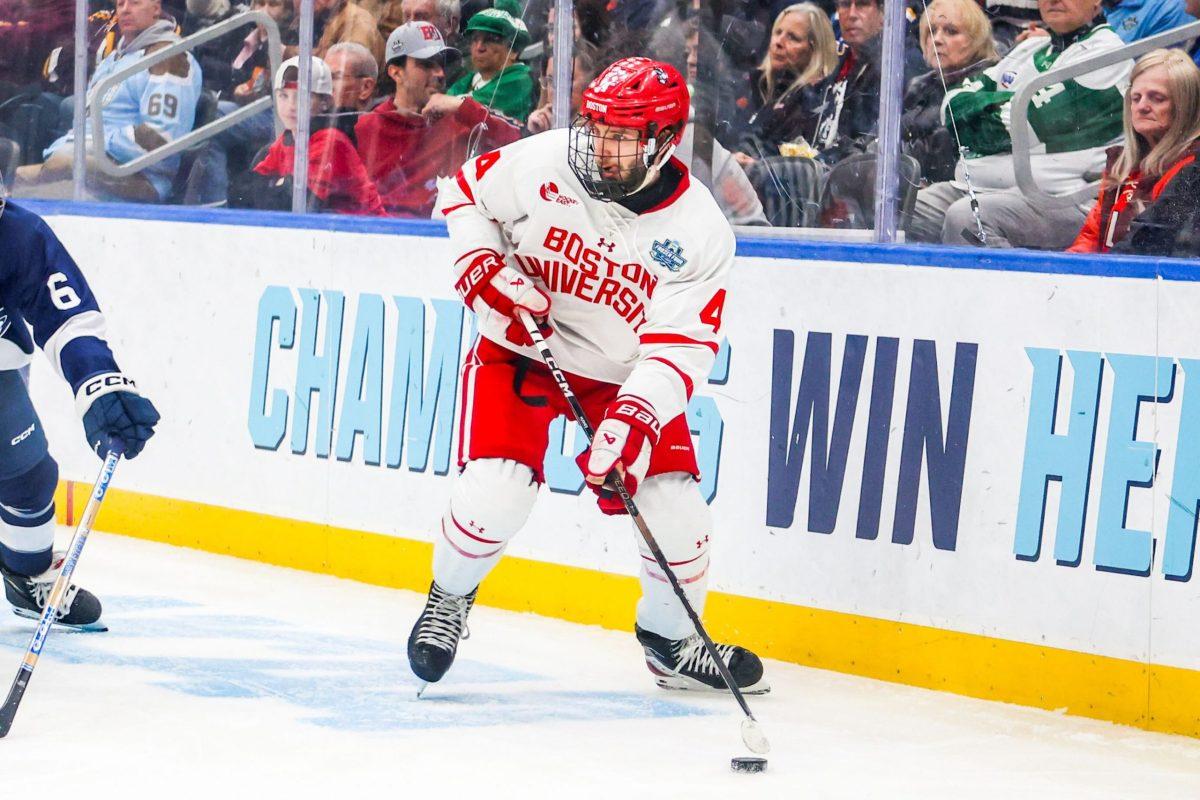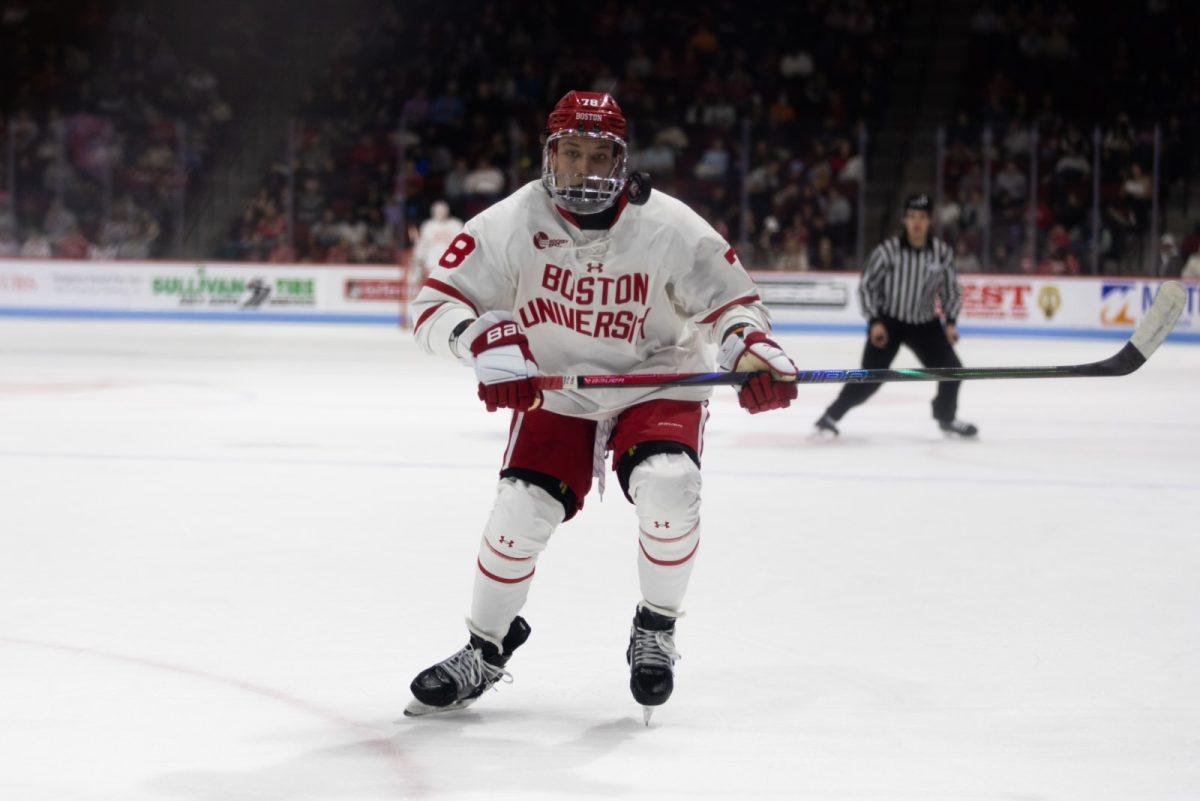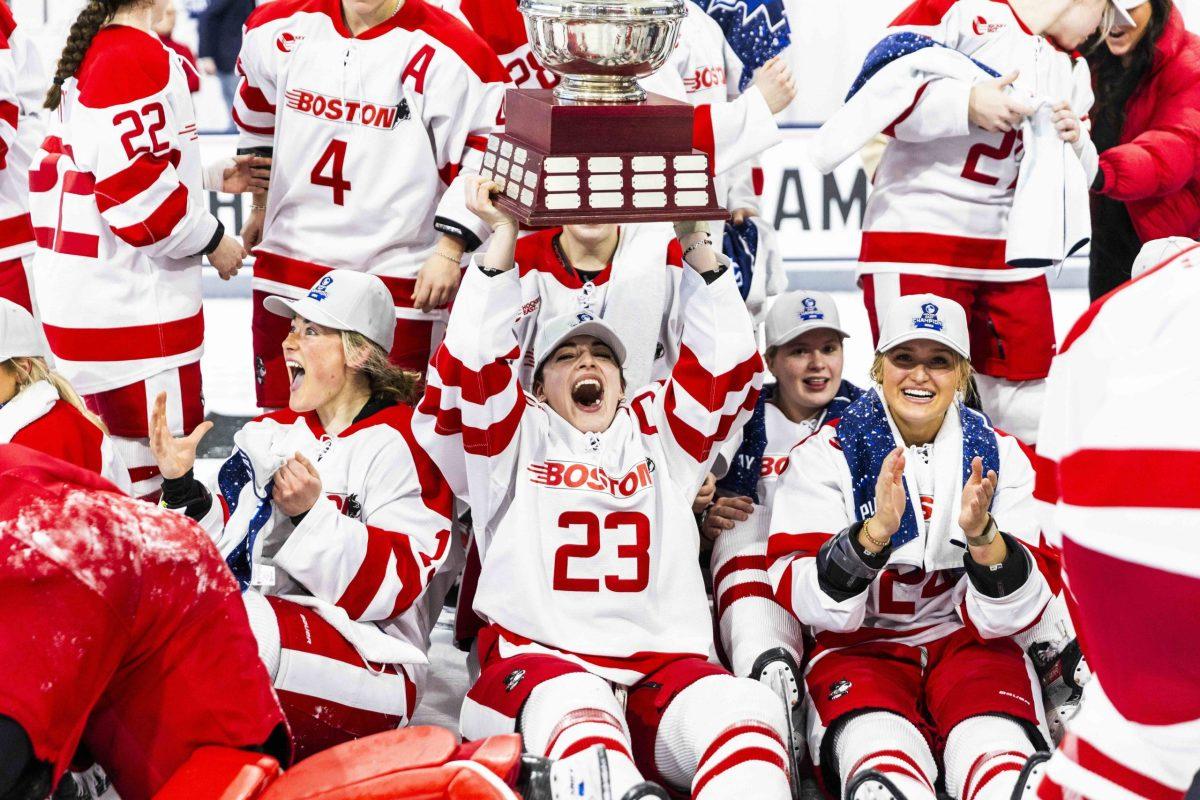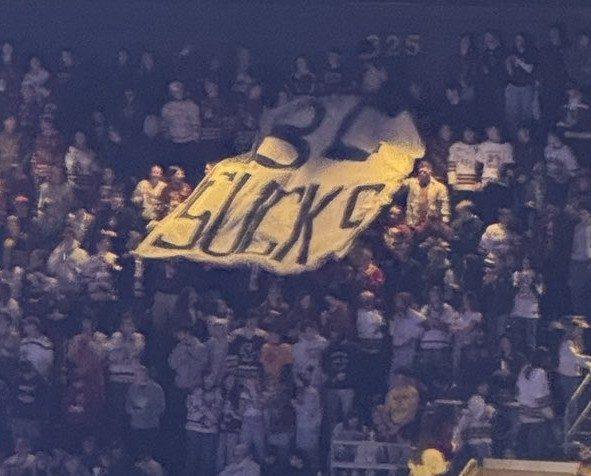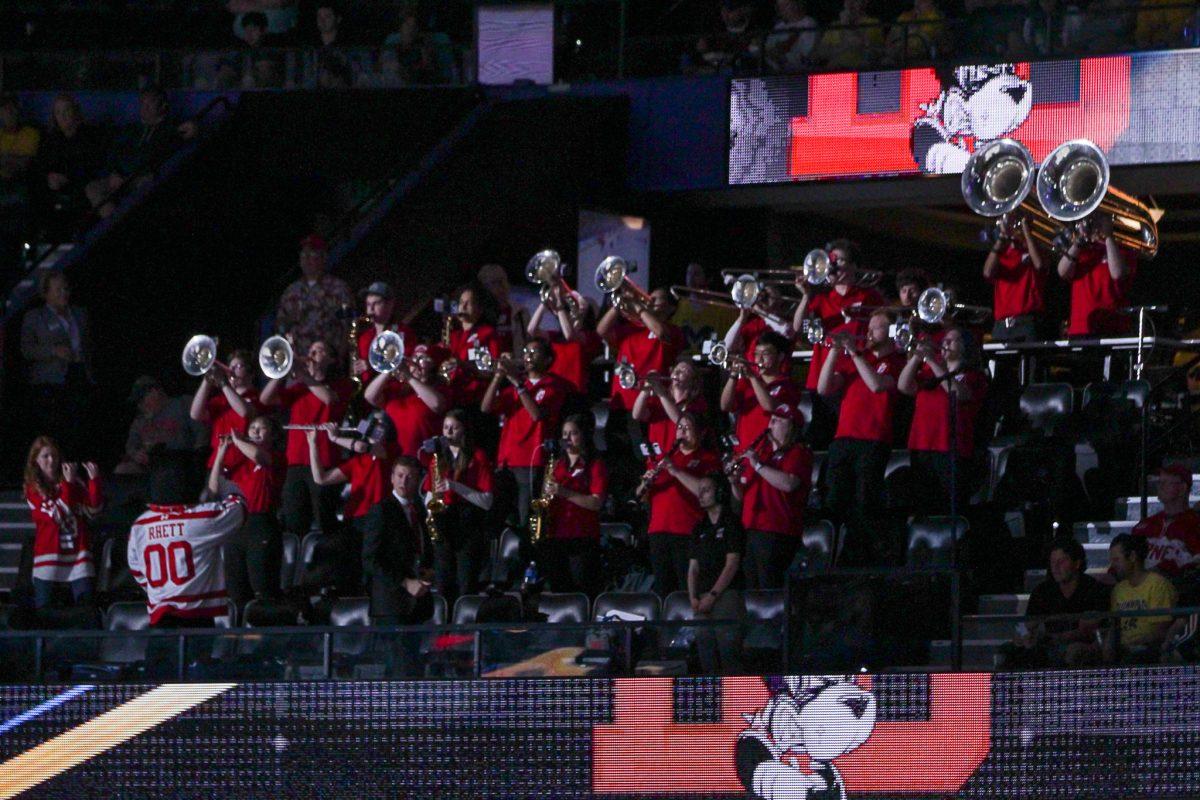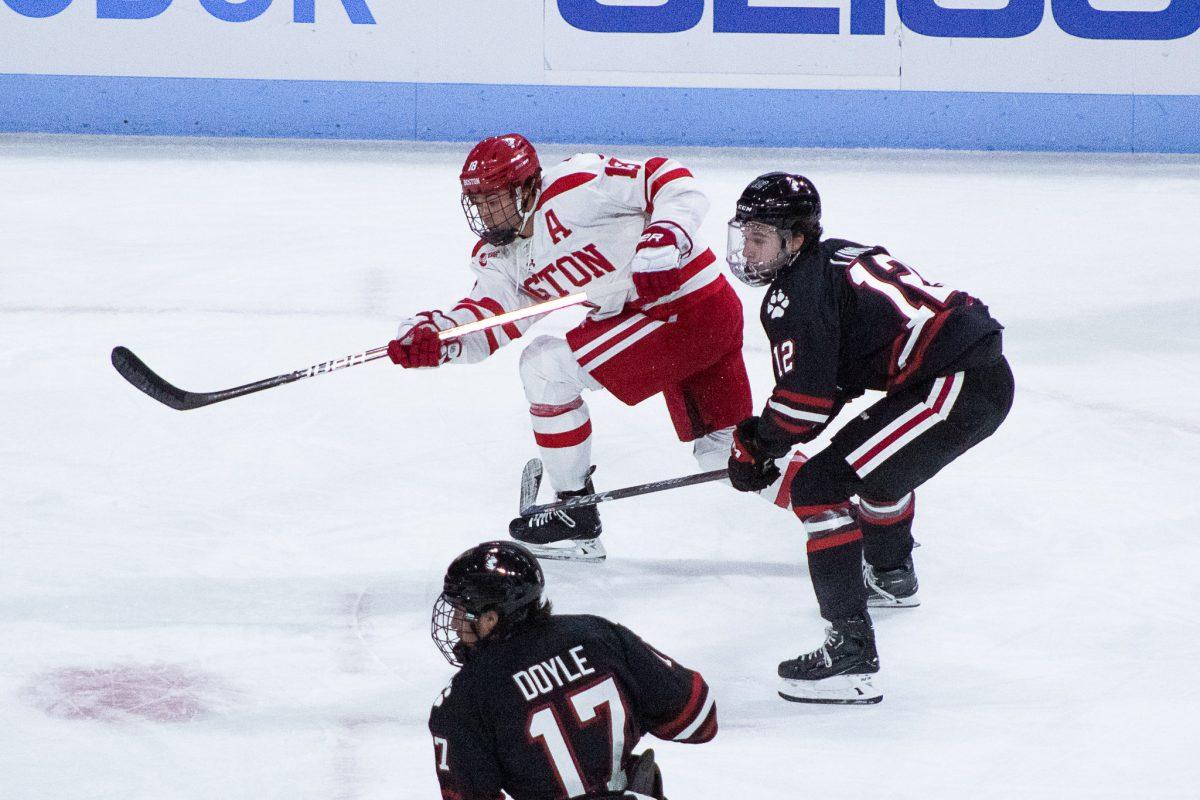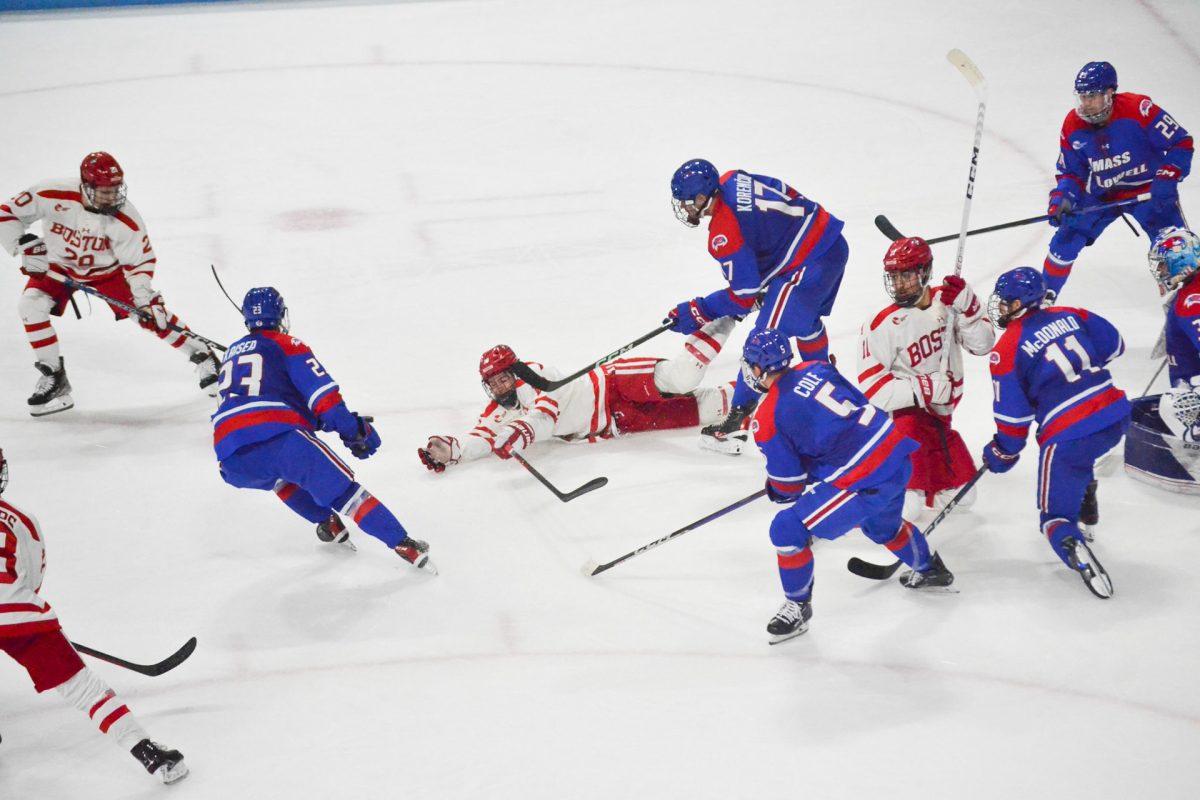By Scott McLaughlin/DFP Staff
(1) New Hampshire (16-11-7, 15-6-6) vs.
(8) Vermont (15-12-7, 9-11-7)
Neither of these teams is quite what you would call “on fire” entering the playoffs. The Wildcats have been a .500 team since late January — they went 4-4-3 to close out the regular season. The Catamounts have gone just 3-4-5 during that same span. Included in that stretch was a weekend series between the two at UNH three weeks ago. Peter LeBlanc’s game-winner gave the Wildcats a 5-4 overtime victory Friday night before the teams skated to a 3-3 tie Saturday. UNH also won the first meeting between these two teams, 5-2, back in December.
The numbers
UNH boasts the better offense (3.41 goals per game to 3.09), while Vermont boasts the better defense (2.91 goals-against average to 3.18). Although the teams have similar numbers on the power play (17.7% to 16.9% in favor of Vermont) and penalty kill (80.7% to 80.6% in favor of UNH), the Wildcats take a league-fewest 9.8 penalty minutes per game — 2.6 fewer than the Catamounts. That’s resulted in a plus-5 special teams net for UNH, while Vermont has a meager minus-7 net.
Players to watch
Have to start with Bobby Butler. The UNH senior captain isn’t just a top candidate for Hockey East Player of the Year, but also for the Hobey Baker Award. He’s second in the country in goals (25) and sixth in points (47) and was tied for first with 41 points in conference play. For Vermont, senior Brayden Irwin has really stepped up to the plate. After scoring 48 points in his first three seasons combined, he has 34 this season and leads the team in both goals (15) and assists (19).
Goaltending
Goaltending should be a wash in this series. Vermont’s Rob Madore and UNH’s Brian Foster registered nearly identical save percentages this season (.907 and .906, respectively). They also both have big-game experience — Madore started all three of the Catamounts’ NCAA games last season, while Foster started both of the Wildcats’.
Prediction
UNH in three, with all three games being decided by two goals or fewer and at least one game going to overtime.
(2) Boston College (21-10-3, 16-8-3) vs.
(7) Massachusetts (18-16-0, 13-14-0)
What have you done for me lately?
The Eagles have been on a tear since late January, closing out the regular season on a 9-2-1 run. The Minutemen… haven’t been on a tear. They’ve gone 3-8-0 during that same period, including a winless month of February. UMass has looked better in its last three games, though. It forced BC to overtime in a 2-1 loss two weeks ago and then swept Maine up in Orono last weekend. The Eagles swept the season series between these two, also picking up wins of 3-1 in December and 7-1 in February.
The numbers
They all favor BC. The Eagles claim the better offense (3.71 GPG to 2.88), better defense (2.41 GAA to 3.12), better power play (20.8% to 19.5%) and better penalty kill (86.1% to 77.5%). As you can see, only the power plays are even comparable. BC’s plus-1.30 average goal differential is the best in Hockey East and fourth-best in the nation.
Players to watch
In the first half, UMass’ James Marcou (46 points) and Casey Wellman (41 points) were the best offensive duo in the country. When the team went winless in February, though, the pair combined for a paltry four points in six games. Then in comes March and they combine for eight points in two games up at Maine. They’ll have to build on last weekend rather than return to February form if UMass is going to have any chance. Meanwhile, BC has its own elite duo in Brian Gibbons (42 points) and Cam Atkinson (41 points). They’ve combined for 34 points in 12 games since Jerry York put them on the same line. Think it’s a coincidence the Eagles have gone 9-2-1 in those games? I don’t.
Goaltending
Once again, advantage Eagles. Freshman Parker Milner and junior John Muse rank third and fifth in the conference with save percentages of .914 and .910, respectively. Paul Dainton’s .906 doesn’t exactly make him a sieve, but BC still has the edge. It will be interesting to see if York continues to use the rotation he’s employed throughout the second half. Milner’s been better of late, allowing just seven goals in his last six games, but Muse has the experience factor, having backstopped BC on its national championship run two years ago.
Prediction
BC in two, with at least one game being decided by four goals or more.
(3) Boston University (16-15-3, 13-12-2) vs.
(6) Merrimack (15-17-2, 12-13-2)
What have you done for me lately?
The Terriers started the second half 9-3-0, then went 1-3-0 in their next four and then swept Northeastern on the last weekend of the regular season to improbably capture the third seed. As has been the case all season, it’s nigh impossible to predict which BU team is going to show up on any given night. The Warriors have been much more consistent over the last month, finishing the season on a 6-2-2 run. After the starting the season an atrocious 0-13-0 away from Lawler Arena, they’ve gone 3-1-1 in their last five road contests. These two split a weekend series back in November and BU won the season rubber match in January. They combined for 29 goals in the three games.
The numbers
BU has the better offense (3.32 GPG to 3.06) and Merrimack has the better defense (3.18 GAA to 3.35), but the real story here is special teams. The Warriors are first in the league with 15.7 penalty minutes per game and the Terriers are second with 15.1, so it’s safe to say special teams are going to play a role in this series. Despite the fact that Merrimack has the better power play (22.9% to 19.8%) and penalty kill (80.9% to 80.0%), BU has the better special teams net (+8 to -6) thanks to the fact that it leads the conference in both power-play chances (197) and shorthanded goals (9).
Players to watch
Merrimack’s Stephane Da Costa (44 points) is a lock not just for Hockey East Rookie of the Year, but also for National Rookie of the Year. He ranks third nationally and first among freshmen with 1.42 points per game. The Parisian has recorded multiple points in nine of 18 second-half contests. For the Terriers, Colby Cohen has tallied 11 goals in the second half, the most by any defenseman in the country during that time. Merrimack should be particularly weary of Cohen when BU’s a man up (his eight power-play goals are tied for second in the league) or when the game’s tied (his five game-winners are tied for the most in the conference).
Goaltending
Not much to write home about here. BU’s Kieran Millan ranks 13th out of 13 qualifying Hockey East goalies with an .883 save percentage. Merrimack’s duo of Andrew Braithwaite and Joe Cannata isn’t much better. Braithwaite’s 10th at .902 and Cannata’s 11th at .899. Of course, Millan has something Braithwaite and Cannata don’t — experience on the big stage. He started all four of BU’s NCAA games en route to a national championship last season.
Prediction
BU in three, with at least one game featuring 10 combined goals and all three games featuring at least 15 combined penalties.
(4) Maine (16-15-3, 13-12-2) vs.
(5) UMass-Lowell (18-14-4, 12-11-4)
What have you done for me lately?
Two teams heading in opposite directions. The Black Bears are just 2-6-0 since mid-February, while the River Hawks are 4-2-2 during that same period. Maine did everything it could to give away home ice last weekend when it was swept at home by a UMass team that had lost six straight going in, but UML’s win and tie against Vermont wasn’t quite enough to take advantage. These two split a series in Orono in February. Maine won the first meeting in Lowell back in November.
The numbers
More opposites. The Black Bears have a much better offense (3.71 GPG to 3.06) and the River Hawks have a much better defense (2.39 GAA to 3.44). Maine also has a significant advantage in special teams (+23 net to +3 net). Its 29.5-percent power play is the best in the nation.
Players to watch
Maine’s Gustav Nyquist is my pick to win the Hobey Baker Award right now. He leads the country in points (56), assists (38) and points per game (1.65). Despite his team’s struggles, Nyquist has notched 24 points in 12 games since the last weekend of January. For UML, it starts on the blue line with two of the best defensemen in the conference — Jeremy Dehner (20 points, +19 rating) and Nick Schaus (23 points, +11 rating). Up front, Scott Campbell has emerged as the leader with goals in each of the River Hawks’ last four games.
Goaltending
This is the biggest difference between these two teams. UML’s Carter Hutton leads Hockey East in both save percentage (.928) and GAA (2.06). Meanwhile, Maine just suspended starting goalie Scott Darling indefinitely for violating team rules, and he’s not expected to dress this weekend. That leaves the Black Bears with either Dave Wilson (0-3-0, .871 save percentage) or Shawn Sirman (1-6-0, .832 save percentage) as their starting goalie. In case you didn’t notice, they’re a combined 1-9-0 this season and they both have horrendous save percentages.
Prediction
UML in three, with Maine switching to a backup goalie at least once.

